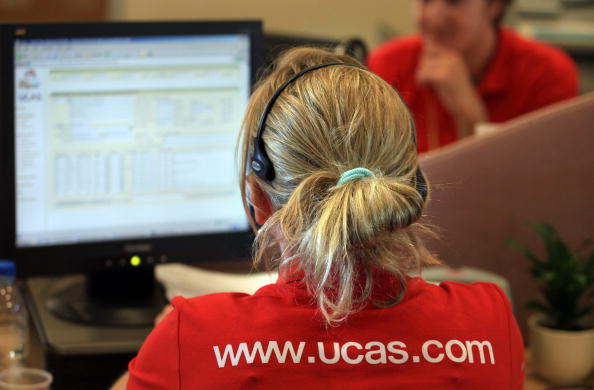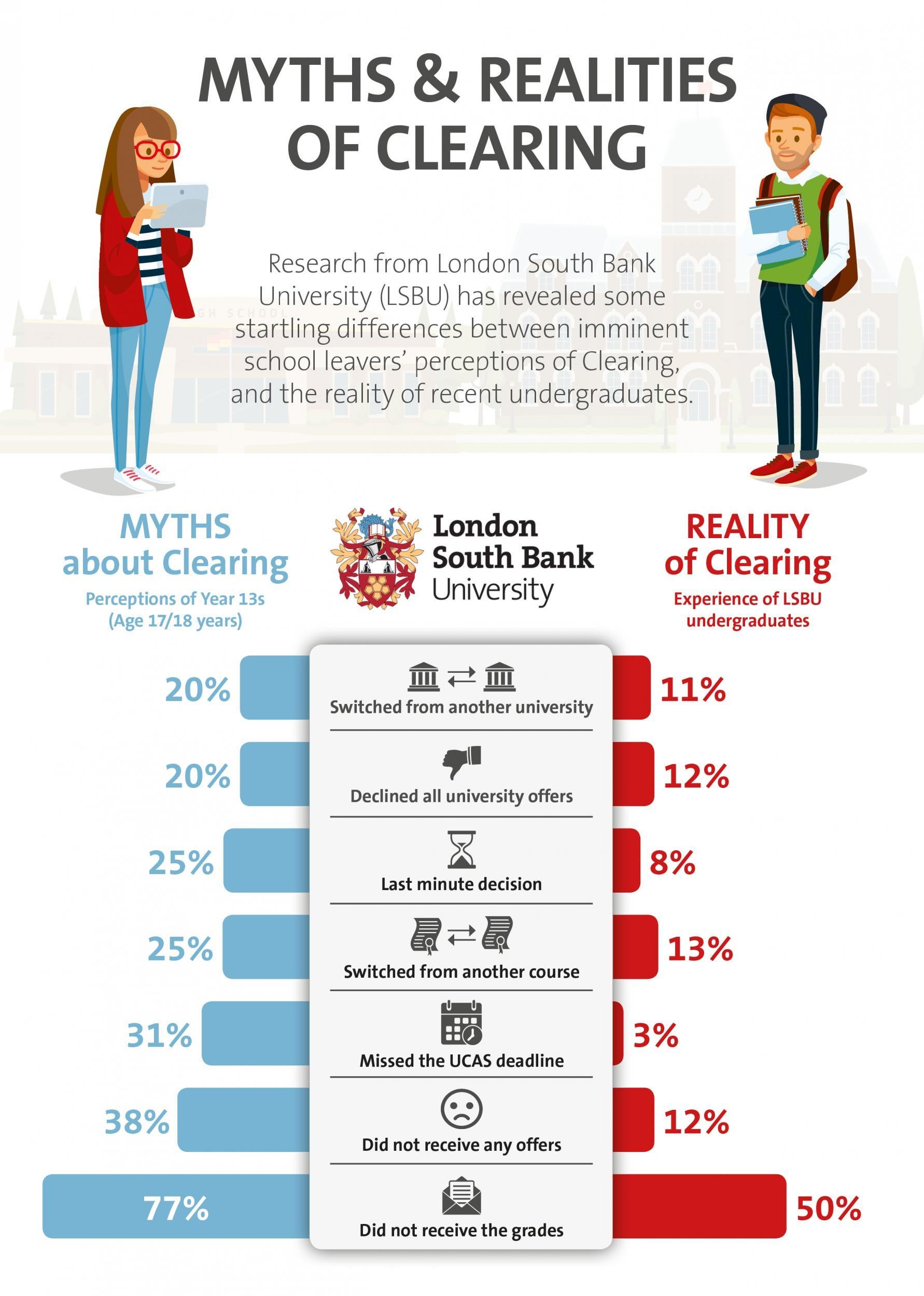Exam results do not determine whether students use Ucas Clearing, new research finds
Only half of recent undergrads who applied through Clearing say they did so because they missed grades, quashing view expressed by 77% of Year 13s who think low grades result in entering the system

Students’ exam results do not determine whether they use the Ucas Clearing system or not, according to new research.
Young people’s perceptions of the Clearing system before applying to university and the reality being expressed by recent undergraduates with first-hand experience of the process are not matching up, said London South Bank University (LSBU).
Only half of recent undergraduates who applied through Clearing said they did so because they missed the grades required for their first choice course, quashing the overwhelming view expressed by over three quarters - 77 per cent - of Year 13s who cite this as the reason they may apply through Clearing.
Clearing is the way in which universities and colleges fill places they still have on their courses and, for students who have no further or higher education offers, is seen as an alternative way to find another course.

The system, though, is about more than missed grades, said Ian Mehrtens, chief operating officer at LSBU, who added: “It’s high time the tired and outdated myths so often associated with the process are laid to rest.
“Students now apply through Clearing for a whole raft of different reasons - many not even associated with exam results at all.”
Somewhat worryingly, though, almost a third - 31 per cent - of Year 13s perceived missing the Ucas deadline as a reason to enter the Clearing process.
LSBU’s survey seems to contradict another which was recently carried out by The Student Room (TSR). That survey showed more than half of students wanted to see Ucas Clearing be abolished completely, and, instead, be replaced by a system which enables them to reapply in September with their actual grades.
Students also expressed to TSR a sense of embarrassment at having to use Clearing; when asked if they would tell their peers if they got in via the system, 48 per cent responded ‘no’, fearing they would be seen as “stupid” or “inferior.” A further 19 per cent said Clearing is “for people who are desperate to still get into university.”
Regarding employment prospects, LSBU said there is little or no difference between those who applied through Clearing and those who did not; 70 per cent of recent LSBU graduates who applied through Clearing are in employment or further study six months after graduation, compared to 69 per cent of LSBU graduates who did not apply through Clearing - a difference of just one per cent in favour of Clearing applicants.
Mehrtens continued: “Our research confirms applicants who apply through Clearing are not disadvantaged in their studies or career development which completely undermines the negativity so often directed at Clearing.
“With greater social mobility, diversity, and numbers of people in higher education, routes to university inevitably become more varied. Many applicants are further removed from the Ucas timetable than perhaps A-levels students who are guided through the applications process by their schools.
“The research does suggest, though, that many Year 13s and their schools need to pay greater attention to the Ucas deadline. A third perceiving the deadline may be missed is not a good sign.”
Ucas Clearing is available July to September each year. If you already have your exam results - but have no offers - you’re able to use Clearing from July. Click here for more information
Join our commenting forum
Join thought-provoking conversations, follow other Independent readers and see their replies
Comments
Bookmark popover
Removed from bookmarks